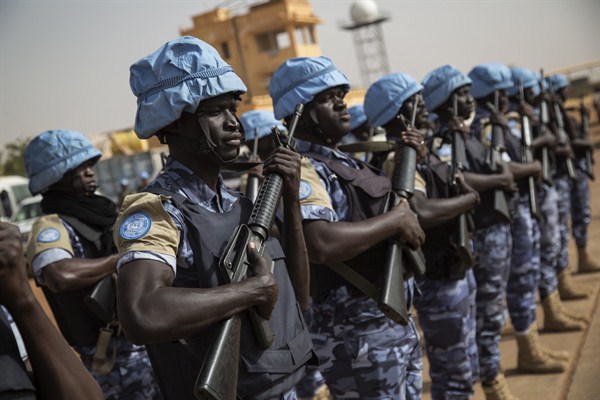Could the election of Donald Trump as president of the United States presage an unexpected boost for United Nations mediators and peacekeepers? It seems an improbable proposition. During the election campaign, Trump frequently criticized the U.N., and he looks likely to disrupt multilateral diplomacy on issues from climate change to human rights.
Why should he be any kinder to the organization’s envoys and the blue helmets? The answer is that, having laid out an utterly incoherent vision of international security in his campaign, he may need the U.N. to help fill some of the biggest gaps.
Previous Republican leaders have bashed the U.N. loudly while quietly supporting its peacemaking efforts. Former President George W. Bush threatened the institution with irrelevance over Iraq, but sponsored a huge expansion of its peacekeeping efforts from Haiti and Liberia to Darfur and Lebanon. When Bush took office in January 2001, the U.N. had just under 40,000 troops and police deployed on its missions worldwide. By the time Barack Obama took over as president eight years later, the figure had more than doubled to 91,000 personnel. The number rose more slowly during Obama’s tenure, and currently hovers at a little more than 100,000.

